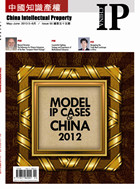
Africa is the second-largest continent in the world, both in area and population. If one includes the surrounding islands there are almost 60 territories with a population of more than one billion people. Over the last decade Africa’s overall economic growth rate has approached that of Asia, and according to projections by the International Monetary Fund, on average Africa will have the fastest-growing economy of any continent over the next five years.
Background
As most African territories were formerly European colonies, their respective legal systems are understandably closely based on those of their former colonial powers. African countries that were formerly French, Belgian and Portuguese colonies have civil law legal systems, whilst former British colonies have common law legal systems.
As far as Intellectual Property (IP) is concerned, in general the golden rule for Africa, is to always register IP rights. This process should be started long before one invests in, or starts a business in any country in Africa and must continually be looked at during the life of the business. Generally speaking, in order to obtain trade mark protection it is necessary to secure a national trade mark registration; however anyone interested in the protection and enforcement of IP rights in Africa should be aware not only of the role of the two regional IP systems (OAPI and ARIPO) but also the Madrid system. This article outlines how these systems operate in Africa.
Regional Systems
Madrid protocol and agreement
There are currently 16 African countries which are members of the Madrid Protocol: Algeria, Botswana, Egypt, Ghana, Kenya, Lesotho, Liberia, Morocco, Mozambique, Namibia, Sierra Leone, Sudan, Swaziland, Zambia, Madagascar and Sao Tome & Principe. Rwanda has also recently announced that it will join the Madrid Protocol with effect from August 17th 2013. International trade mark registrations are not valid and enforceable in all African countries which have joined the Madrid arrangements. In particular, in common law countries, which were formerly British colonies, an international agreement can only become part of domestic law when it has expressly been enacted into that national law by an Act of Parliament. As there is no such reference to the Madrid arrangements in the national laws of Ghana, Sierra Leone, Swaziland and Zambia international trade mark registrations should not be considered to be effective or enforceable in those countries. There is also remaining doubt concerning the effectiveness of international trade mark registrations in Lesotho, Liberia, Namibia, Sudan and Egypt.
OAPI
This is a multi-national organization originally established in 1962. It currently covers 18 African countries namely: Benin, Burkina Faso, Cameroon, Central African Republic, Chad, Comoros, Congo, Equatorial Guinea, Gabon, Guinea, Guinea-Bissau, Ivory Coast, Mali, Mauritania, Niger, Senegal Togo and most recently Comoros. OAPI applies first to file regional system which covers a combined African population in excess of 100 million people. OAPI registrations automatically extend to all member states as of the date of filing and it is neither necessary nor possible to designate individual member states. OAPI works effectively and efficiently.
ARIPO
The African Regional Intellectual Property Organisation (ARIPO) was established in 1976 as a result of the Lusaka Agreement. The establishment of this system was initially aimed at providing a centralised registration process for patents and industrial designs only. However, in 1997 the Banjul Protocol came into effect which also provided for the registration of trade marks. There are currently 9 countries that have ratified the Banjul Protocol: Botswana, Lesotho, Liberia, Malawi, Namibia, Swaziland, Uganda, United Republic of Tanzania and Zimbabwe.
It is necessary to designate the individual member countries where protection is sought. Unfortunately ARIPO does not work effectively for trade marks for the principal reason that only Botswana and Zimbabwe have passed the necessary legislation giving effect to their obligations in terms of the Banjul Protocol. For that reason it is recommended that national applications be filed in each of the member countries where trade mark protection is sought.
Conclusion
There has been substantial economic growth in Africa which has resulted in the unprecedented registration of IP rights on the continent; however great care should be taken when selecting an IP lawyer or an agent as there are relatively few with the necessary technical skills and qualifications to navigate the current complexities and potential pitfalls that exist within this diverse continent.
|
Copyright © 2003-2018 China Intellectual Property Magazine,All rights Reserved . www.chinaipmagazine.com 京ICP备09051062号 |
|
|



